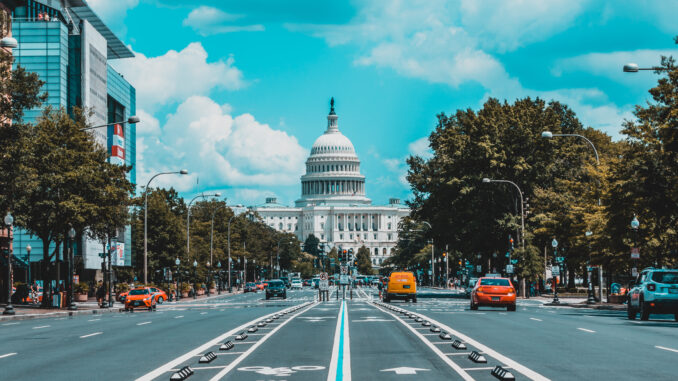
by Colleen Hammond | editor-in-chief
As the first anniversary of the Jan. 6 insurrection reared its head, lawmakers (almost exclusively from the left) reflected on the fragility of our democracy. While the Biden administration has faced an onslaught of crisis, both inherited and self-inflicted, since taking office, the latest agenda item has been the growing threat of voter suppression across the country.
It’s no secret that voting rights and election security have been on the lips of America’s talking heads since the start of the 2020 campaign season. However, despite the widely acknowledged and longtime issues surrounding voting, the Biden administration chose to address it head on this week, likely hoping to gain some ground near the upcoming commemoration of Dr. Martin Luther King Jr.’s birthday.
This week, President Biden and Vice President Harris traveled to Atlanta to speak about the need for increased protections of voting rights and to call upon Congress to pass the John Lewis Voting Rights Act and the Freedom to Vote Act. Both pieces of legislation would strengthen the Voting Rights Act of 1965, which has been weakened multiple times by various Supreme Court rulings.
His voice inflamed with passion, Biden spoke at length about the threat of voter suppression looming over the nation, with a particular emphasis on how Black, Latinx and working class voters are being targeted.
“Last year alone, 19 states not proposed — but enacted — 34 laws attacking voting rights,” Biden said.
He followed this by noting that an additional 400 bills aimed at voter suppression were proposed this year by Republican state legislators across the nation.
While Biden obviously should use his standing as president to condemn voter suppression and election subversion, his tone and timing on this issue speak volumes to one of the core issues with American politics.
Every policy decision, across party lines, is entirely reactionary.
We have been approaching our democracy like a leaky pipe in a basement. Instead of caring about the minor leaks, lawmakers would rather wait until the basement floods to address the problem.
For some reason, our leaders wait until our national issues reach monumental levels before they intervene. Nothing is done in preparation and careful foresight. Instead, only when problems reach fever pitch do they merit true attention from federal leaders and lawmakers.
This year, IDEA, a European think tank, listed the United States as a “backsliding democracy” in their annual ranking of global democracies. While there are a variety of reasons for this listing, events like the Jan. 6 insurrection are just the tipping point.
Issues like voter suppression are nothing new. For nearly the entire existence of this country, someone, meaning at least one or more major population groups, has been excluded from full protection under the law and/or denied the right to vote.
While we have come a long way from the days where white, property-owning, adult males were the sole group who could legally cast a vote, there has always been more work to be done to uphold the rights and dignity of everyone in this country.
Lawmakers love to tout that our country is a “work in progress,” but they seldom choose to have the fortitude to ensure that this necessary work happens in their generation. It is only when issues reach critical levels — like the current rampant voter suppression problems — that lawmakers want to step in.
Our political system doesn’t have to operate this way. We can choose to see past our noses and recognize the need to create policies that protect future generations.
The second that lawmakers saw Supreme Court rulings like Shelby County v. Holder chip away at voting rights, they should have stepped in and created additional measures to uphold the right to vote.
And the example of voting rights is just the tip of the iceberg. Almost every decision about the pandemic, the climate crisis, the lead water epidemic, inflation management, infrastructure, foreign policy, military operations and a myriad of others have been made with a knee-jerk reaction once the problem finally became too large to ignore.
It’s high time we stop waiting for the basement to flood before fixing the leaking pipe of our
democracy.



